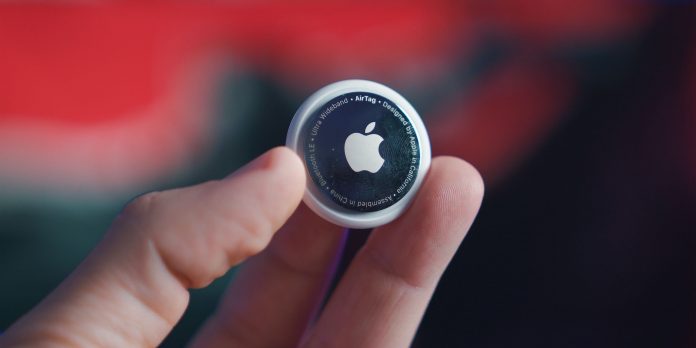Apple’s tracking device, AirTag, has been maliciously used by individuals for unwanted stalking, harassment, robbery, and other crimes. Two women have sued Apple saying that the device has become “one of the most dangerous and frightening technologies employed by stalkers.”
Launched just last year, the AirTag became stalkers’ “weapon of choice,” at least 150 police cases involving stalkers utilizing the device in the US, were documented by Vice, two of which ended in murder in Ohio and Indiana.
Apple made efforts to prevent stalking, by releasing a series of updates, an app called Tracker Detect for Android users to discover unknown AirTags near them and an initial warning that using the device to track people is illegal, shall only be used to locate personal items.
“AirTag was designed to help people locate their personal belongings, not to track people or another person’s property, and we condemn in the strongest possible terms any malicious use of our products,” a blog post from Apple noted. “Unwanted tracking has long been a societal problem, and we took this concern seriously in the design of AirTag. It’s why the Find My network is built with privacy in mind, uses end-to-end encryption, and why we innovated with the first-ever proactive system to alert you of unwanted tracking.”
The lawsuit filed last week in the U.S. Northern District Court of California says: “what separates the AirTag from any competitor product is its unparalleled accuracy, ease of use (it fits seamlessly into Apple’s existing suite of products), and affordability.” The AirTag, a coat button-size device, works by emitting Bluetooth signals to Apple’s “Find My” network of connected devices, accurately reporting the location to the owner. With a retail price of $29, the tracker “has become the weapon of choice of stalkers and abusers,” states the lawsuit.
None of the two plaintiffs in the lawsuit are seeking financial damages, but are requesting a jury trial. The women suing claimed that their ex-partners followed them using AirTags, and as long as the device will be sold as currently marketed, they fear to be unknowingly tracked further. “The risks involved with a product like this being abused still seem like they far outweigh the convenience of finding a misplaced set of keys,” the complaint says.
Source: arstechnica.com









